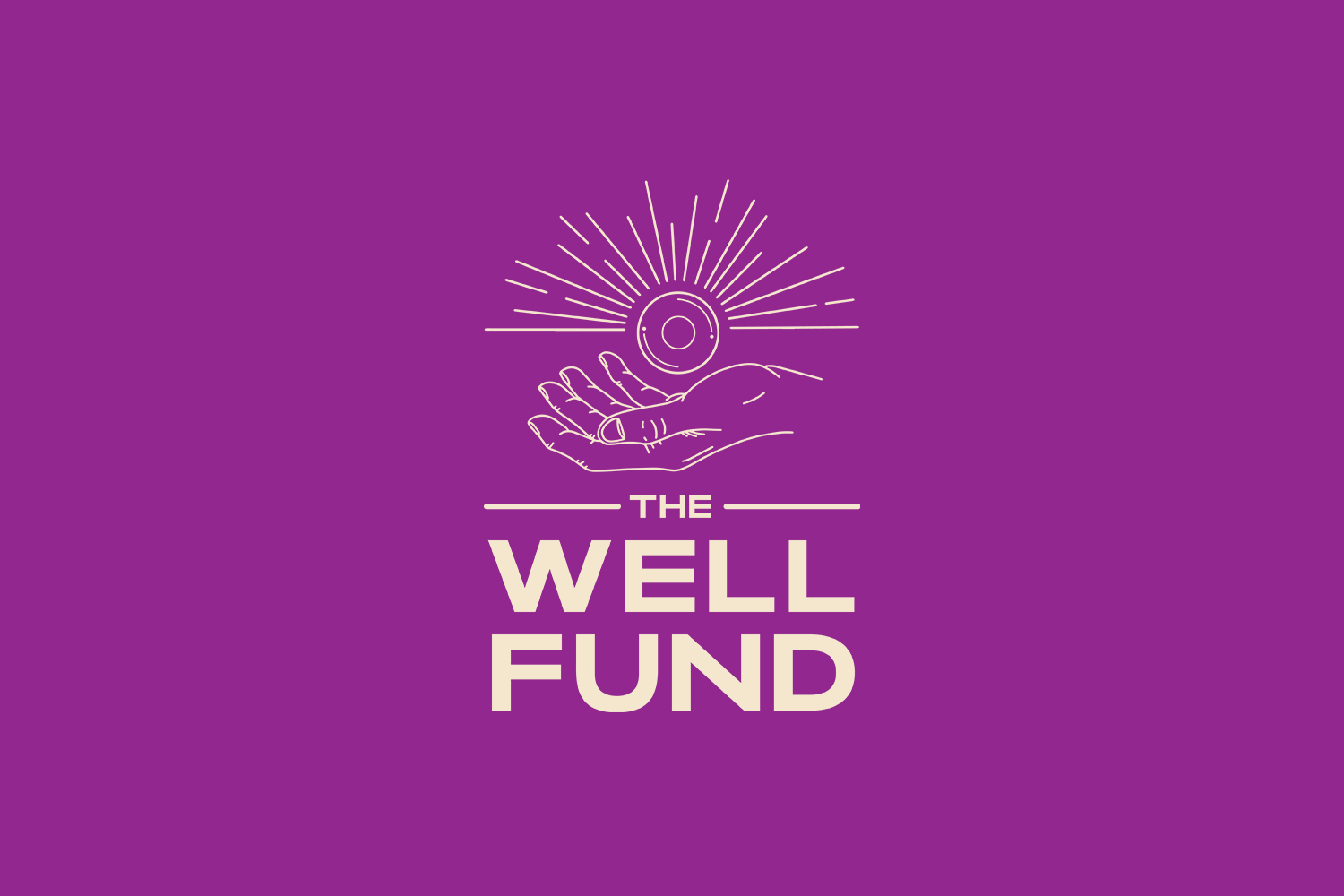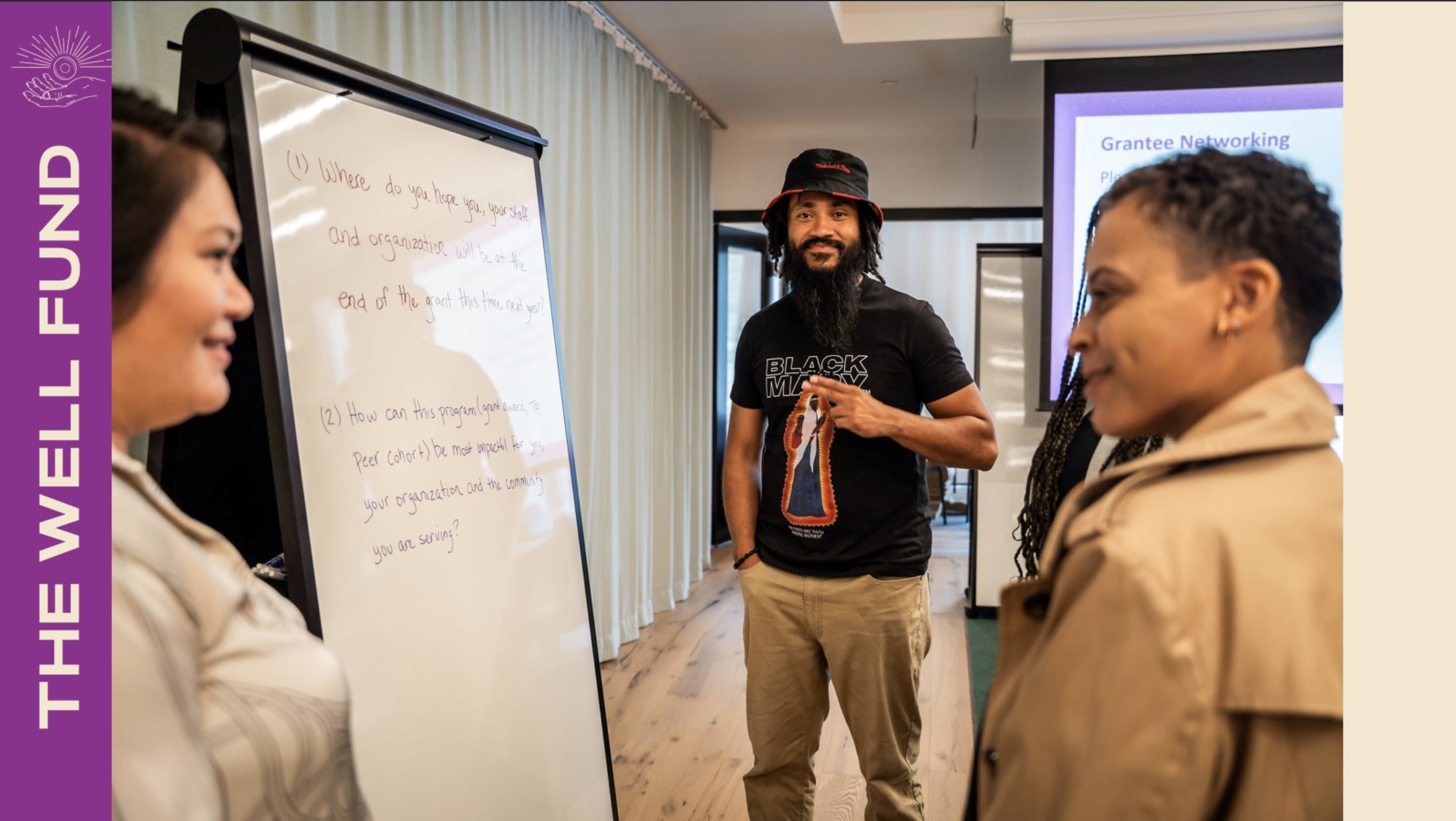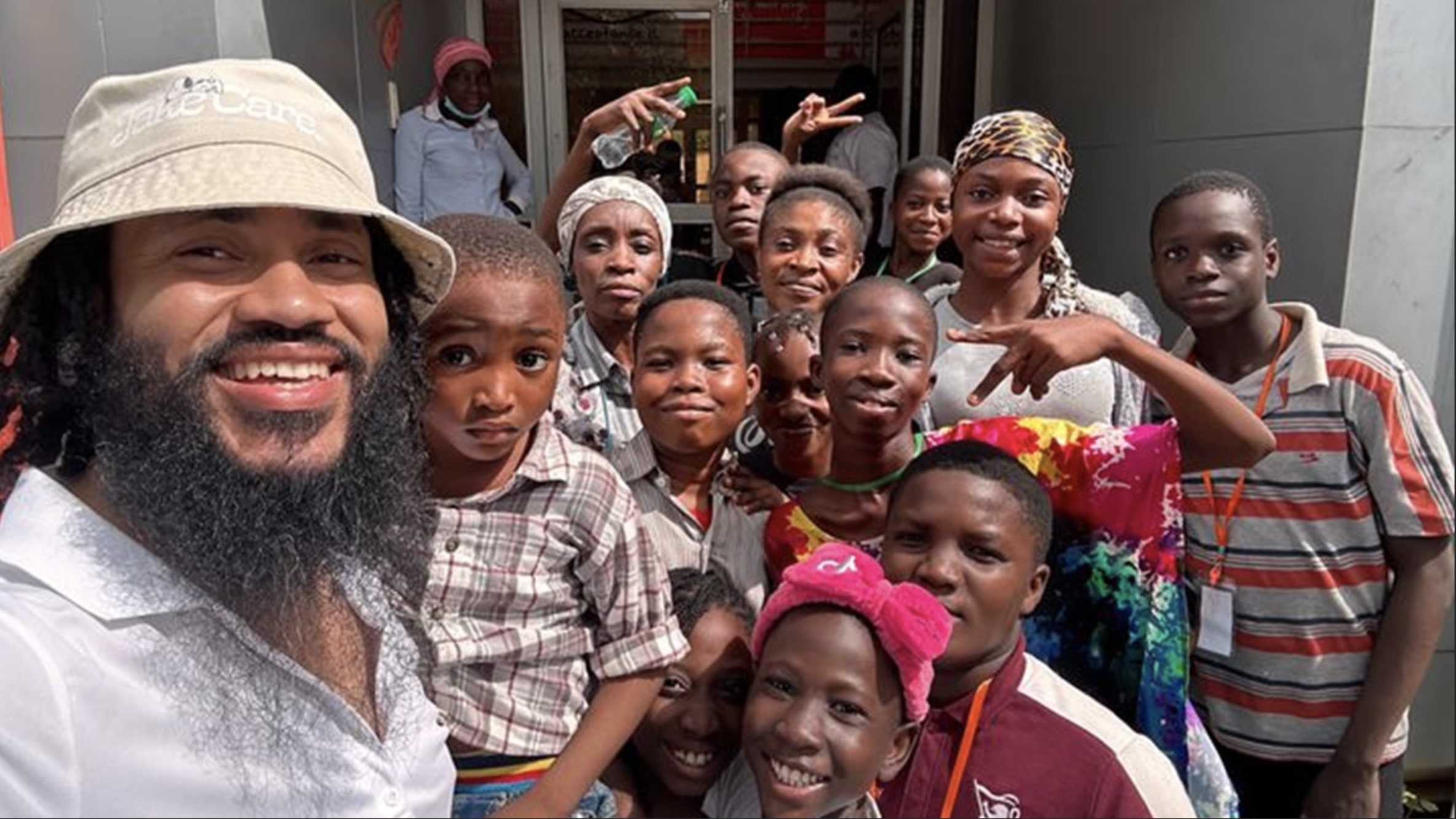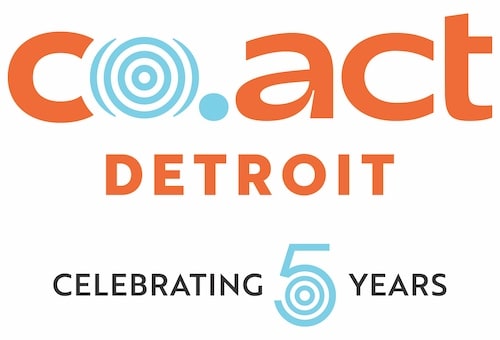The WELL Fund
The WELL Fund is a grant program created by Co.act Detroit, in partnership with The Skillman Foundation, Black Executive Directors Alliance Detroit and the Youth Development Resource Center, to support the wellness and capacity of small, BIPOC-led nonprofits who serve Detroit youth (ages 5-24).
With support from The Skillman Foundation, the first cohort of grantees was awarded in 2023. Grant awards support general operating funding, technical assistance, capacity building and leadership development, and support for wellness activities.

BIPOC-led nonprofits receive less funding though they are often more ingrained and attuned to the communities they serve. Our goal was to create a fund specifically to support the leaders of these organizations.
– Terry Whitfield, Former Partnership Manager at The Skillman Foundation
Selection Process
Co.act and Skillman worked collaboratively with Detroit youth and their allies to shape what the grant program should look like – from program design to award selection.
Nonprofit leaders applied for the first round of grant funding in May 2023. A committee of Detroit youth, parents, BIPOC nonprofit leaders, Co.act and Skillman staff, and other community stakeholders made up the selection committee, with youth comprising a 51% majority. The committee reviewed applications, deliberated as a group, and collectively selected grant awardees:
- Better Men Outreach Program
- Class Act Detroit
- Garage Cultural
- Journey to Healing
- The Konnection

In August 2023, five additional organizations received grants of $65,000 to support general operating funding, technical assistance, capacity building and leadership development, and support for wellness activities. Four organizations received committee wellness stipends of $12,500 each for a total of $375,000 in award funding:
- Color of Autism Foundation
- One Michigan for the Global Majority
- Encourage Me I’m Young Inc.
- Motor City STEAM Foundation
Impact
Read stories about how The WELL Fund has impacted several nonprofits.
Class Act Detroit
 Class Act Detroit, founded and directed by Rashard Dobbins, is a nonprofit dedicated to empowering Detroit youth through Hip Hop. With workshops that include podcasting, music, graffiti murals, DJing, and MCing, Class Act Detroit is committed to fostering racial healing and equity in Detroit’s younger population.
Class Act Detroit, founded and directed by Rashard Dobbins, is a nonprofit dedicated to empowering Detroit youth through Hip Hop. With workshops that include podcasting, music, graffiti murals, DJing, and MCing, Class Act Detroit is committed to fostering racial healing and equity in Detroit’s younger population.
This grassroots organization provides creative and educational opportunities to over 300 children across Detroit. Dobbins, who is affectionately known as “Mr. D” by some of the kids, brings his entertainment and educational backgrounds to the forefront of the organization’s programs. These initiatives range from intimate classroom settings to vibrant block parties that attract up to 1,300 attendees, showcasing the impact and reach of Class Act Detroit across the city.
Impact of the WELL Fund
On paper, Class Act Detroit appears to be a one-man operation, but Dobbins credits the support of his family and friends—his “tribe”—for the organization’s success in uplifting Detroit’s youth. This appreciation is extended to Co.act, who Class Act Detroit has worked with since its inception in 2017.
The impact of becoming a grantee of the WELL Fund grant on Class Act Detroit has been profound in helping him build capacity, according to Rashard. Rashard thinks that WELL Fund’s unique appeal lies in its ability and trust to fund necessities that grantee leaders identified.
While some of the organization’s funding goals were well-defined, other needs evolved over time. Despite this year (2024) being one of the organization’s most challenging, Dobbins feels a sense of relief, attributing it to the flexibility and support of the WELL Fund grant, which allows him to “breathe.” He remarks, “Money isn’t everything, but I think the true wealth in life is health itself.”
Co.act’s hands-on approach, working alongside community members to spark change, reflects the Hip-Hop project’s values. Dobbins commends the Co.act staff for their genuine investment in Class Act Detroit’s mission and for serving as role models for Class Act. He shared that Co.act’s abilities to build trustworthy relationships, cultivate networks to generate power and change systems, and invest in the inner well-being of leaders have taught him a lot as a leader.
Color of Autism
Camille Proctor, Executive Director of Color of Autism, founded her organization in 2009 for reasons very personal to her. Her son was diagnosed with autism, a challenge for any parent, and especially for a mother of a Black boy. Because Black boys are more often – and more quickly — mis-diagnosed as “oppositional defiant,” a term that, for example, can lead to Black boys being labeled as “bad” and tracked in the school system in ways that don’t support their abilities to live up to their full potential.
Camille explained that on average Black children are diagnosed with autism at age five, compared to white children who are diagnosed at age 18 months to two years old. She wants to change this. Her organization seeks to help people, including families who may have members with autism, understand that autism doesn’t discriminate, and instead affects all races, including the Black community. She and her staff teach Black families to advocate for their children’s needs; they provide trainings to families by practitioners and researchers who look like the families they work with, which provides families comfort and approachability; and they provide childcare providers training for how to work with kids with special education needs and development disorders, like autism.
Impact of the WELL Fund
The WELL Fund, which selected Camille Proctor as an awardee, helped her start a program that she had envisioned for years. It encourages “typical” and “atypical” kids to work on projects together so they can better understand each other. “Because the more we understand one another, the more similarities we realize we have, and the more kids will be able to find a commonality in fellowship.” Camille shared.
“Kids have so much empathy once they understand what’s happening. They become protectors and don’t want anything bad to happen to anyone. Once on the playground, kids were playing on the monkey bars, and one said, ‘That’s Sean. He’s processing where he’s going to go next, so you’ll have to wait.’ Kids have learned that sometimes people just process things differently, and that’s okay,” Camille said.
The WELL Fund supported Camille to realize the program’s vision and impact. She’s also accessed the WELL Fund’s mental health resources, like training in simple yoga poses and mindfulness, which have been critical as mental health and autism are comorbidities. Families she serves have been able to access these resources and experts too; they have become trusted individuals that Camille knows she can refer her community to without judgment. The Fund has connected her to other collaborators, like Rashard Dobbins, who makes music with some of her young people while teaching them that there are all sorts of musical careers available for people with autism.
Journey to Healing
Shardaya Fuquay had suffered significant personal losses and struggled to find adequate support groups, so in 2017 she founded her own grief support group, called Journey to Healing, with visions of growing it to provide continuous and comprehensive care.
Today, through collaborations with community organizations like the Detroit Public Library, Journey to Healing has grown into a clinical treatment center that offers services to families, children, adults, and couples. It also provides mental health support and contractual services to external agencies.
Journey to Healing adopts a holistic and educational approach to grief and trauma, teaching clients about the stages of grief, coping skills, and emotional intelligence. This empowers individuals to understand their emotions and remain productive citizens despite their losses.
Impact of the WELL Fund
Journey to Healing became a grantee of the WELL Fund grant in 2019, which has been transformative in helping them grow by 200% and improve and sustain organizational operations. The unrestricted funding offered them flexibility to address urgent needs through services and programs, quality of care, marketing, staff training, or infrastructure. They gained credentials, billed insurance, and expanded their services significantly; they now serve over 600 people annually with two locations and partnerships in 18 schools.
Before receiving the grant, the organization operated from a building not accessible to clients or clinicians. The grant enabled them to relocate to a beautiful new, accessible space with a play therapy room for children impacted by trauma or grief.
The funding also allowed Journey to Healing to extend support to external agencies and families who lack health insurance. Journey to Healing now offers uncompensated care, ensuring that high-quality services are available to all, regardless of insurance status.
Finally, the grant allowed them to pay their staff equitable wages, allowing the organization to attract and retain highly educated and capable clinicians.
Shardaya values the BIPOC leadership of Co.act and the personal relationships Co.act staff has built with their organization and other grantees.
One Michigan for the Global Majority
One Michigan for the Global Majority was thrilled to be an awardee of the WELL Fund grant, as it is an organization that historically is overlooked for funding opportunities. Because they work with undocumented immigrants, a small population in Detroit, it’s hard to access or qualify for federal grants.
The organization started 15 years ago as a youth-run organization. Today, adults run the organization, but youth drive everything they do, and a youth council advises it. Its mission is to help youth develop authentic leadership skills, believing youth are the ones who have the power to drive change. The organization gives youth a budget, then, working from that budget, youth envision and develop a program, and finally, pitch it to the organization’s leadership for approval, which is exactly how its idea for use of the WELL Fund grant was born.
Impact of the WELL Fund
Youth developed CALM, which is a program designed to help other youth with mental health challenges. The concept is simple with a high impact: youth fill out a survey that asks them to identify various mental health challenges they are currently experiencing or have experienced in the past like depression, anxiety and disordered eating. Responses are ranked based on need, and then each month, a peer-to-peer support group is set up to address a particular challenge. Youth attend the talk session, which is led by another youth, then share a meal together to strengthen bonds, and finally engage in a physical activity to help release stress or tension.
“One Michigan has become a substantial place for me. I was very recluse in high school. I could not speak with other people. I couldn’t project my voice. One Michigan helped me grow. The first thing I did with One Michigan was a CALM session. I loved it so much that I wanted to be included in its job program, which is why I’m here,” says one of the Youth Council Members.
The WELL Fund helped them offer the popular CALM program more often throughout the year, which Executive Director Samantha Magdaleno, who started One Michigan in her early 20s, is incredibly grateful for. She hopes to be awarded a capacity building grant in the future to set her successors up for success financially and programmatically.
The Konnection
The Konnection, founded by Sharnese Marshall, is a Detroit-based nonprofit dedicated to inspiring youth through positive relationships and healthy connections. Their mission focuses on addressing chronic absenteeism among students in Detroit Public Schools, helping them stay engaged and connected. Sharnese founded The Konnection to give back to Detroit’s youth, inspired by her own supportive upbringing.
Impact of the WELL Fund
The WELL Fund grant has been a game-changer for The Konnection. Prior to being selected as a grantee, Sharnese and her program manager worked unpaid for a full year, driven by passion but limited by resources. The WELL Fund allowed Sharnese to pay her program manager a full-time salary, as well as significantly boost the organization’s capacity and reduce team burnout. It also enabled the launch of the Parent Konnection, a program that engages parents and kids in wellness activities they can do together, such as “Painting with a Twist” and salon visits, in turn creating stronger familial bonds and improving self-esteem.
The WELL Fund grant made it possible for the students to go on field trips, like visits to Zap Zone, Urban Air Trampoline Park, and more. These experiences, along with an HBCU college tour, have given them opportunities for personal growth and exploration.
Reflecting on the impact, Sharnese shared, “One student wrote a love letter to The Konnection, saying, ‘Dear The Konnection, thank you for always making sure that we have the best experiences in our lives. These are experiences I never thought I could be a part of.’”
Co.act stood out to Sharnese because of the ongoing and targeted support her organization received through the WELL Fund. Unlike other grants, Sharnese shared that Co.act provided technical assistance and helped her identify and address blind spots. Co.act gave her and her team guidance on fundraising, financial planning, marketing, and public relations. “The WELL Fund was a type of grant that wrapped their arms around us,” she shared, emphasizing the value of feeling included and supported throughout the process.
She credits the grant with adding legitimacy to The Konnection, which has since attracted additional funding from notable foundations like Kresge, Ballmer Group, and others, effectively tripling their bottom line.
Co.act’s WELL Fund grant is invaluable. Their unique support and consulting bridges gaps that other funders do not.
– Shardaya Fuquay of Journey To Healing
For More Information
The WELL Fund gave us as leaders in the community an opportunity to lead. And that makes a big difference. It allows people in the community – who are doing the work, who understand what the community needs, who know the people we work with – to thrive. We really are better together.
– Camille Proctor, Executive Director of Color of Autism
